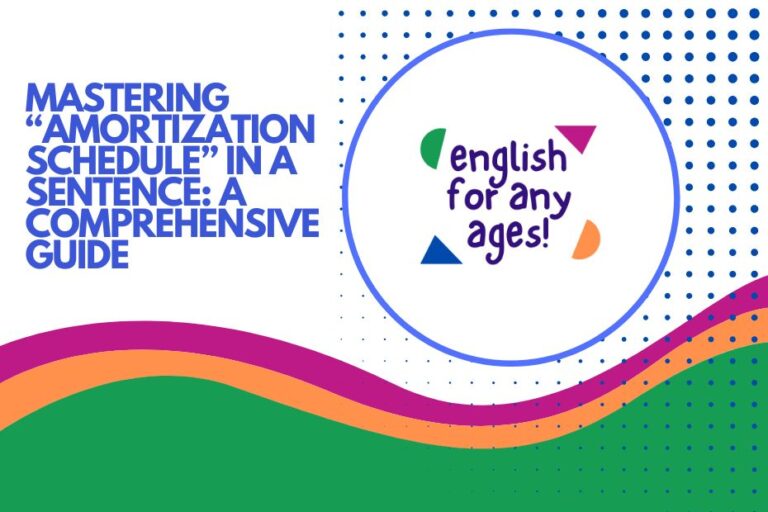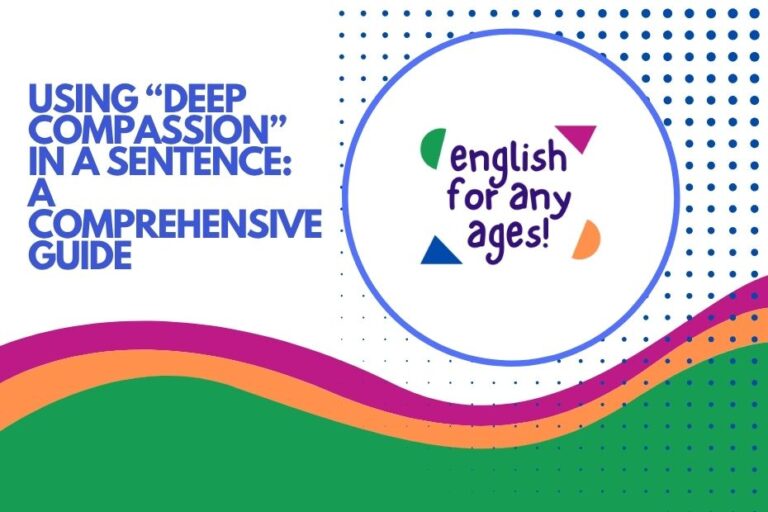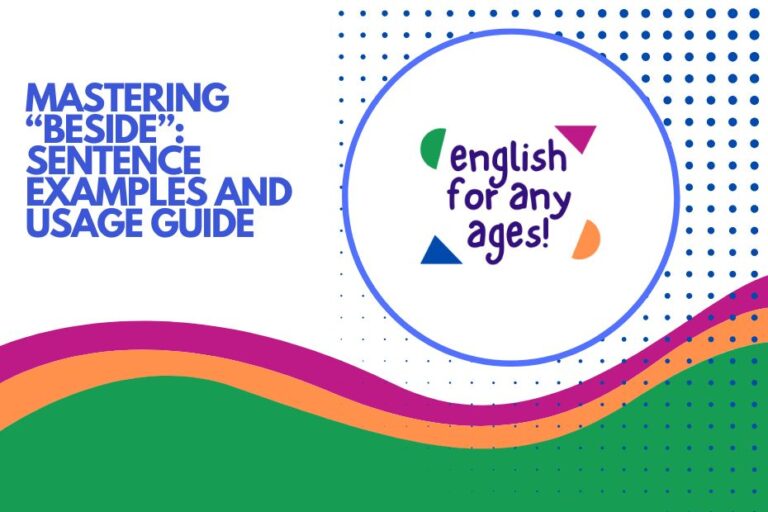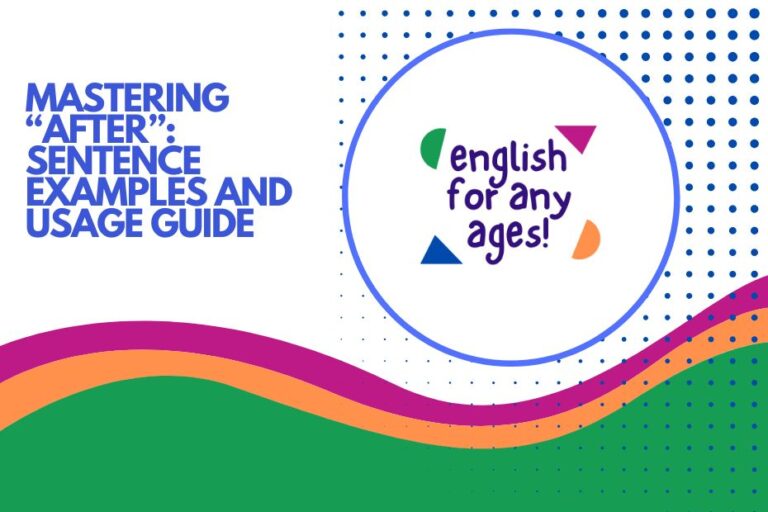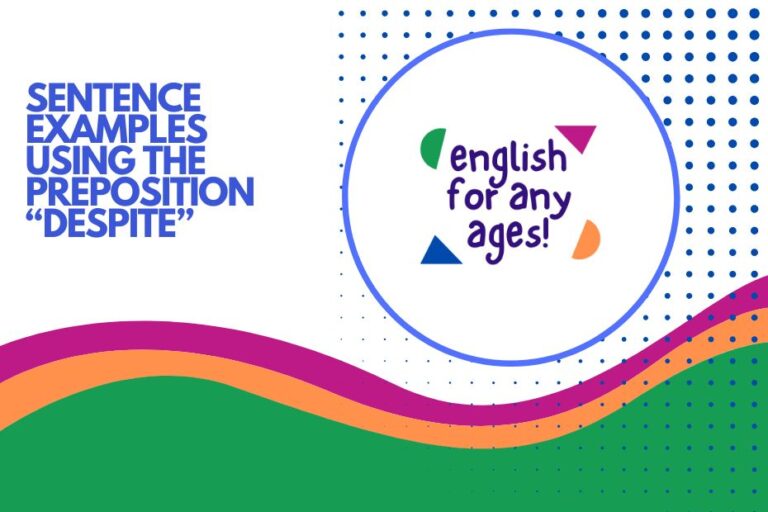Beyond “Have a Nice Day”: Alternative English Greetings
Mastering a variety of greetings and farewells is crucial for effective communication in English. While “Have a nice day” is a common and polite expression, relying solely on it can make your speech sound repetitive and lack nuance.
This article explores numerous alternative ways to express good wishes, enhancing your vocabulary and making your interactions more engaging. Whether you’re a student, a professional, or simply someone looking to improve their English, this guide will provide you with the tools to communicate more effectively and expressively.
Understanding these alternatives not only expands your linguistic repertoire but also allows you to tailor your greetings to specific situations and relationships. From formal business interactions to casual conversations with friends, knowing the appropriate phrase can make a significant difference in how you are perceived.
This comprehensive guide will cover a range of expressions, their meanings, and their proper usage, equipping you with the confidence to navigate various social contexts with ease.
Table of Contents
- Introduction
- Definition and Overview
- Structural Breakdown
- Types and Categories of Alternative Greetings
- Examples of Alternative Greetings
- Usage Rules and Guidelines
- Common Mistakes to Avoid
- Practice Exercises
- Advanced Topics
- Frequently Asked Questions
- Conclusion
Definition and Overview
The phrase “Have a nice day” is a standard closing remark used to express goodwill and politeness when parting ways with someone. It essentially conveys the wish that the other person experiences a pleasant and positive day.
However, its widespread use can sometimes make it sound generic or insincere. Exploring alternative phrases allows for more personalized and contextually appropriate expressions of goodwill.
Alternative greetings encompass a wide range of expressions that serve the same purpose as “Have a nice day” but offer variations in formality, tone, and specificity. These alternatives can be categorized based on their level of formality (formal vs. informal), the specific situation in which they are used (e.g., after a meeting, before a trip), and regional differences in language.
Using a variety of these phrases can make your communication more engaging and demonstrate a greater command of the English language.
Understanding the nuances of these alternatives is essential for effective communication. For instance, using a highly informal greeting in a formal business setting could be perceived as unprofessional, while using an overly formal greeting with a close friend might sound stilted or unnatural.
This article will provide a comprehensive guide to navigating these nuances and choosing the most appropriate greeting for each situation.
Structural Breakdown
Many alternatives to “Have a nice day” follow similar grammatical structures, often employing imperative verbs or conditional clauses to convey a wish or hope. Understanding these structures can help you create your own variations and adapt existing phrases to suit different contexts.
A common structure involves the use of an imperative verb followed by a noun phrase that describes the desired experience. For example, “Enjoy your evening” follows this structure, with “enjoy” being the imperative verb and “your evening” being the noun phrase.
Another structure involves the use of conditional clauses, such as “Hope you have a great time,” which expresses a wish for a positive experience using the verb “hope.”
Furthermore, some alternatives incorporate adjectives to further specify the desired quality of the day or experience. For instance, “Have a wonderful day” adds the adjective “wonderful” to emphasize the positive nature of the wish.
By understanding these structural elements, you can effectively analyze and adapt existing greetings, as well as create new ones that are tailored to specific situations and relationships.
Types and Categories of Alternative Greetings
Alternative greetings can be broadly categorized based on their formality, the specific situation in which they are used, and regional variations. Understanding these categories is crucial for choosing the most appropriate greeting for each context.
Formal Greetings
Formal greetings are typically used in professional settings, when addressing someone you don’t know well, or when you want to convey a high level of respect. These greetings often employ more sophisticated vocabulary and avoid colloquialisms.
Informal Greetings
Informal greetings are appropriate for casual conversations with friends, family, and close colleagues. These greetings often use more relaxed language and may include slang or idioms.
Situation-Specific Greetings
Situation-specific greetings are tailored to particular events or circumstances. For example, you might use a different greeting when someone is about to go on vacation or when they are about to start a new job.
Regional Variations
Regional variations in greetings reflect the diverse linguistic landscape of the English-speaking world. Certain phrases may be more common or preferred in specific regions or countries.
Examples of Alternative Greetings
This section provides a comprehensive collection of alternative greetings, organized by category, to help you expand your vocabulary and enhance your communication skills.
Formal Greetings Examples
The following table showcases formal alternatives to “Have a nice day,” suitable for professional environments and interactions requiring a high degree of respect. These examples are carefully chosen to reflect politeness and professionalism.
| Formal Greeting | Context |
|---|---|
| “I wish you a pleasant day.” | General formal setting, suitable for any time of day. |
| “Have a productive day.” | Workplace, implying hope for successful task completion. |
| “May your day be filled with success.” | Formal business meeting, emphasizing achievement. |
| “I hope you have a successful day.” | Professional email, expressing encouragement. |
| “Wishing you a wonderful afternoon.” | Late morning or early afternoon interaction. |
| “Have a good evening.” | Ending a conversation in the late afternoon or early evening. |
| “I trust you will have a pleasant experience.” | Service industry, ensuring customer satisfaction. |
| “May your endeavors be fruitful.” | Formal farewell in a business context, wishing success in future projects. |
| “I hope your day goes well.” | General formal setting, suitable for any time of day. |
| “Have a rewarding day.” | Suggesting personal or professional fulfillment. |
| “Wishing you all the best for the remainder of the day.” | Formal and comprehensive well-wishing. |
| “I wish you a fulfilling day.” | Suggesting a day filled with meaningful activities. |
| “Have a most agreeable day.” | A more archaic, yet highly formal, expression. |
| “May your day be as productive as your efforts.” | Acknowledging someone’s hard work and wishing them success. |
| “I hope you find success in all your tasks today.” | Specific wish for accomplishment in daily activities. |
| “Wishing you a day of accomplishment and satisfaction.” | Comprehensive wish for both achievement and contentment. |
| “Have a day that brings you closer to your goals.” | Motivational wish for progress. |
| “I hope your day is filled with positive outcomes.” | Expressing hope for favorable results. |
| “May your day be characterized by efficiency and effectiveness.” | Formal wish for productive work. |
| “Wishing you a day that exceeds your expectations.” | Expressing hope for surprisingly good results. |
| “Have a day that sets the stage for future success.” | Long-term motivational wish. |
| “I trust your day will be both productive and enriching.” | Combining professional and personal growth. |
| “May your day be as bright as your potential.” | Expressing belief in someone’s abilities. |
| “Wishing you a day filled with opportunities.” | Hope for chances to advance. |
| “Have a day that brings you closer to your aspirations.” | Motivational wish for achieving ambitions. |
| “I hope your day is as exceptional as you are.” | Complimentary and encouraging. |
| “May your day be marked by both progress and peace.” | Wishing for both advancement and tranquility. |
| “Wishing you a day that paves the way for future accomplishments.” | Emphasizing long-term success. |
| “Have a day characterized by both innovation and insight.” | Wishing for creative and thoughtful work. |
Informal Greetings Examples
The following table provides informal alternatives to “Have a nice day,” suitable for casual conversations with friends, family, and close colleagues. These examples use more relaxed language and may include slang or idioms.
| Informal Greeting | Context |
|---|---|
| “Have a good one!” | General informal setting. |
| “Take it easy!” | Relaxed farewell, suggesting a calm and stress-free day. |
| “See ya!” | Very casual, common among friends. |
| “Catch you later!” | Suggesting a future meeting. |
| “Have a great day!” | Slightly more enthusiastic than “Have a nice day.” |
| “Enjoy your day!” | Similar to “Have a nice day,” but with a focus on enjoyment. |
| “All the best!” | General well-wishing. |
| “Peace out!” | Slang, very informal, implying a relaxed farewell. |
| “Later!” | Short and casual. |
| “Have fun!” | If they have something fun planned. |
| “Have a blast!” | If they are going to party or do something exciting. |
| “Keep smiling!” | Encouraging positivity. |
| “Cheers!” | British English, can also mean “thank you.” |
| “Have a good one, mate!” | Australian or British English, friendly. |
| “Take care!” | General well-wishing, implying concern. |
| “Stay cool!” | Suggesting a relaxed and composed demeanor. |
| “Keep it real!” | Slang, implying authenticity and honesty. |
| “Have a sweet day!” | Expressing a wish for a pleasant and enjoyable day. |
| “Rock on!” | Encouraging enthusiasm and energy. |
| “Have a good time!” | If they are going to an event or activity. |
| “Enjoy the rest of your day!” | Addressing the remaining portion of the day. |
| “Have a chill day!” | Suggesting a relaxed and easygoing day. |
| “Have a good one, eh?” | Canadian English, adding a friendly and inquisitive tone. |
| “Stay awesome!” | Encouraging confidence and positivity. |
| “Have a good day, you deserve it!” | Expressing that the person earned a good day. |
| “Have the best day ever!” | Enthusiastic wish for an exceptionally good day. |
| “Enjoy every moment!” | Encouraging mindfulness and appreciation. |
| “Go get ’em!” | Encouraging someone to pursue their goals with vigor. |
| “Have a wonderful day, friend!” | Expressing warmth and affection. |
Situation-Specific Greetings Examples
The following table provides situation-specific alternatives to “Have a nice day,” tailored to particular events or circumstances. These examples demonstrate how to customize your greetings for maximum impact.
| Situation-Specific Greeting | Context |
|---|---|
| “Enjoy your vacation!” | Someone going on holiday. |
| “Good luck with your presentation!” | Before a presentation or important event. |
| “Have a safe trip!” | Someone traveling. |
| “Break a leg!” | Before a performance (theater, music). |
| “Congratulations on your new job!” | Someone starting a new job. |
| “Enjoy the game!” | Someone going to a sporting event. |
| “Have a great workout!” | Someone going to the gym. |
| “Good luck with the exam!” | Before an exam or test. |
| “Enjoy your meal!” | Someone about to eat. |
| “Have a relaxing weekend!” | Before the weekend. |
| “Enjoy your time off!” | Someone taking a break. |
| “Have a productive meeting!” | Before a meeting. |
| “Good luck with your interview!” | Before a job interview. |
| “Enjoy the concert!” | Someone going to a concert. |
| “Have a wonderful birthday!” | On someone’s birthday. |
| “Get well soon!” | Someone who is sick. |
| “Enjoy your retirement!” | Someone retiring. |
| “Have a fantastic wedding!” | Before a wedding. |
| “Good luck with the surgery!” | Before a surgery. |
| “Enjoy the party!” | Someone going to a party. |
| “Have a great run!” | Someone going for a run. |
| “Enjoy your hike!” | Someone going for a hike. |
| “Have a peaceful night!” | Before going to sleep. |
| “Good luck with your negotiations!” | Before negotiations. |
| “Enjoy the conference!” | Someone attending a conference. |
| “Have a successful launch!” | Before launching a product or project. |
| “Good luck with your performance review!” | Before a performance review. |
| “Enjoy the seminar!” | Someone attending a seminar. |
| “Have a memorable experience!” | Someone embarking on a unique adventure. |
Usage Rules and Guidelines
Choosing the appropriate alternative to “Have a nice day” depends on several factors, including the level of formality, the context of the conversation, and your relationship with the other person. Here are some guidelines to help you make the right choice:
- Consider the formality: Use formal greetings in professional settings and when addressing someone you don’t know well. Use informal greetings with friends, family, and close colleagues.
- Think about the context: Tailor your greeting to the specific situation. For example, if someone is about to go on vacation, “Enjoy your vacation!” is more appropriate than “Have a nice day.”
- Be mindful of your relationship: Avoid using overly familiar greetings with people you don’t know well. Conversely, avoid using overly formal greetings with close friends.
- Pay attention to regional variations: Be aware that certain phrases may be more common or preferred in specific regions or countries.
- Be sincere: The most important thing is to be genuine in your expression of goodwill. Choose a greeting that you feel comfortable using and that reflects your true intentions.
Common Mistakes to Avoid
Even with a good understanding of alternative greetings, it’s easy to make mistakes. Here are some common errors to avoid:
| Incorrect | Correct | Explanation |
|---|---|---|
| “Have a nicely day.” | “Have a nice day.” | “Nice” is an adjective, not an adverb. |
| “Enjoy you day.” | “Enjoy your day.” | Possessive pronoun “your” is needed. |
| “Good luck to your exam.” | “Good luck with your exam.” | Use “with” before the noun phrase. |
| “Safe travel!” | “Have a safe trip!” | The full sentence is more grammatically correct. |
| “I wish you a good.” | “I wish you well.” / “I wish you a good day.” | “Good” needs a noun to modify. |
| “Productive day!” | “Have a productive day!” | Missing the verb “have.” |
| “Enjoy from your vacation.” | “Enjoy your vacation.” | Incorrect preposition. |
| “Wishing you a very well.” | “Wishing you well.” | “Well” functions as an adverb here, not needing “very.” |
| “Have a good one, yeah?” | “Have a good one!” | Avoid unnecessary tag questions in casual farewells. |
| “See you soonly!” | “See you soon!” | “Soonly” is not a standard English word. |
Practice Exercises
Test your understanding of alternative greetings with these practice exercises. Choose the most appropriate greeting for each situation.
Exercise 1: Formal Greetings
| Question | Possible Answers | Correct Answer |
|---|---|---|
| You are ending a phone call with a client. | a) “See ya!” b) “I wish you a pleasant day.” c) “Take it easy!” | b) “I wish you a pleasant day.” |
| You are sending an email to your manager. | a) “Have a good one!” b) “I hope you have a successful day.” c) “Peace out!” | b) “I hope you have a successful day.” |
| You are finishing a meeting with a potential investor. | a) “Catch you later!” b) “May your endeavors be fruitful.” c) “Have fun!” | b) “May your endeavors be fruitful.” |
| You are saying goodbye to a professor after class. | a) “All the best!” b) “Have a blast!” c) “I trust you will have a pleasant experience.” | a) “All the best!” |
| You are ending a formal presentation. | a) “Later!” b) “Wishing you all the best for the remainder of the day.” c) “Keep Smiling!” | b) “Wishing you all the best for the remainder of the day.” |
| You are a concierge at a hotel saying goodbye to a guest. | a) “Have a good day, you deserve it!” b) “Have a most agreeable day.” c) “Have a blast!” | b) “Have a most agreeable day.” |
| You are finishing a business lunch with a colleague. | a) “See you soon!” b) “Have a sweet day!” c) “I hope you find success in all your tasks today.” | c) “I hope you find success in all your tasks today.” |
| You are a CEO saying goodbye to a team after a project launch. | a) “Have a good one, mate!” b) “May your day be characterized by efficiency and effectiveness.” c) “Peace out!” | b) “May your day be characterized by efficiency and effectiveness.” |
| You are writing a thank you note to a business mentor. | a) “Take care!” b) “Have a day that sets the stage for future success.” c) “Have fun!” | b) “Have a day that sets the stage for future success.” |
| You are saying goodbye to a VIP client. | a) “Stay awesome!” b) “I trust your day will be both productive and enriching.” c) “Have a chill day!” | b) “I trust your day will be both productive and enriching.” |
Exercise 2: Informal Greetings
| Question | Possible Answers | Correct Answer |
|---|---|---|
| You are saying goodbye to a close friend. | a) “I wish you a pleasant day.” b) “Have a good one!” c) “May your endeavors be fruitful.” | b) “Have a good one!” |
| You are texting a family member. | a) “I hope you have a successful day.” b) “Take it easy!” c) “Wishing you all the best for the remainder of the day.” | b) “Take it easy!” |
| You are saying goodbye to a coworker you are friendly with. | a) “May your endeavors be fruitful.” b) “Catch you later!” c) “I trust you will have a pleasant experience.” | b) “Catch you later!” |
| You are chatting with a classmate after class. | a) “Have a blast!” b) “All the best!” c) “Wishing you a wonderful afternoon.” | b) “All the best!” |
| You are saying goodbye to a teammate after practice. | a) “Later!” b) “Have a productive day.” c) “Wishing you all the best for the remainder of the day.” | a) “Later!” |
| You are saying goodbye to a neighbor that you know well. | a) “Have a good day, you deserve it!” b) “Have a most agreeable day.” c) “Have fun!” | a) “Have a good day, you deserve it!” |
| You are saying goodbye to a barista at your favorite coffee shop. | a) “See you soon!” b) “Have a sweet day!” c) “I hope you find success in all your tasks today.” | b) “Have a sweet day!” |
| You are saying goodbye to a workout buddy after the gym. | a) “Have a good one, mate!” b) “May your day be characterized by efficiency and effectiveness.” c) “Peace out!” | c) “Peace out!” |
| You are saying goodbye to someone after helping them with something. | a) “Take care!” b) “Have a day that sets the stage for future success.” c) “Have fun!” | a) “Take care!” |
| You are saying goodbye to your kids after dropping them off at school. | a) “Stay awesome!” b) “I trust your day will be both productive and enriching.” c) “Have a chill day!” | a) “Stay awesome!” |
Exercise 3: Situation-Specific Greetings
| Question | Possible Answers | Correct Answer |
|---|---|---|
| Your friend is going on a trip to Europe. | a) “Have a nice day.” b) “Have a safe trip!” c) “Have a productive day.” | b) “Have a safe trip!” |
| Your colleague has an important presentation to deliver. | a) “Take it easy!” b) “Good luck with your presentation!” c) “Enjoy your day!” | b) “Good luck with your presentation!” |
| Your sister is about to perform in a play. | a) “Catch you later!” b) “Break a leg!” c) “Have a good one!” | b) “Break a leg!” |
| Your neighbor just got a new job. | a) “All the best!” b) “Congratulations on your new job!” c) “Peace out!” | b) “Congratulations on your new job!” |
| Your friend is going to a baseball game. | a) “Later!” b) “Enjoy the game!” c) “Have a blast!” | b) “Enjoy the game!” |
| Your friend is about to run a marathon. | a) “Have a sweet day!” b) “Have a great run!” c) “Have a rewarding day.” | b) “Have a great run!” |
| Your colleague is about to start a new project. | a) “Have a productive meeting!” b) “Have a sweet day!” c) “Have a successful launch!” | c) “Have a successful launch!” |
| Your friend is going to a concert. | a) “Have a good one, mate!” b) “Enjoy the concert!” c) “Peace out!” | b) “Enjoy the concert!” |
| Your friend is having a birthday. | a) “Take care!” b) “Have a wonderful birthday!” c) “Have fun!” | b) “Have a wonderful birthday!” |
| Your friend is going to take an exam. | a) “Stay awesome!” b) “Good luck with the exam!” c) “Have a chill day!” | b) “Good luck with the exam!” |
Advanced Topics
For advanced learners, exploring the etymology and cultural context of different greetings can provide a deeper understanding of their nuances and appropriate usage. Additionally, studying the use of greetings in literature and film can offer insights into how these expressions contribute to character development and plot progression.
Furthermore, advanced learners can explore the use of greetings in different professional contexts, such as international business negotiations or diplomatic settings, where cultural sensitivity and linguistic precision are paramount. Analyzing real-world examples of successful and unsuccessful communication can provide valuable lessons in navigating complex social situations.
Another advanced topic is the evolution of greetings over time. Language is constantly changing, and the expressions we use to greet and farewell each other are no exception.
Studying historical trends in greetings can shed light on the cultural values and social norms of different eras.
Frequently Asked Questions
Here are some frequently asked questions about alternative greetings in English:
- Is it impolite to always say “Have a nice day”?While “Have a nice day” is generally polite, using it repeatedly can sound generic. Varying your greetings demonstrates greater linguistic skill and sincerity. It is almost never impolite, but variety is the spice of life!
- When should I use formal greetings?Use formal greetings in professional settings, when addressing someone you don’t know well, or when you want to convey a high level of respect. For example, you might use formal greetings when speaking to a client, a supervisor, or a senior colleague.
- Can I use slang in formal greetings?No, slang should be avoided in formal greetings. Stick to more sophisticated vocabulary and avoid colloquialisms. Slang is almost always inappropriate in formal settings.
- What are some regional variations in greetings?“Cheers” is common in British English, while “Have a good one, eh?” is often used in Canadian English. Be aware of these regional differences when communicating with people from different areas.
- How can I improve my vocabulary of alternative greetings?Read widely, listen to native speakers, and pay attention to the greetings used in different contexts. Make a list of new phrases and practice using them in your own conversations.
- Is it okay to create my own greetings?Yes, as long as you follow the basic grammatical structures and are mindful of the level of formality. Be creative and experiment with different expressions to find what works best for you.
- What if I accidentally use an informal greeting in a formal setting?Don’t worry too much. Simply apologize and use a more formal greeting. Most people will understand that it was an honest mistake.
- How do I know if a greeting is appropriate for a particular situation?Consider the context, your relationship with the other person, and the overall tone of the conversation. If you’re unsure, it’s always best to err on the side of formality.
Conclusion
Mastering alternative ways to say “Have a nice day” is an essential step in enhancing your English communication skills. By understanding the nuances of formality, context, and regional variations, you can choose the most appropriate greeting for any situation.
This not only makes your speech more engaging but also demonstrates a greater command of the English language.
Remember to practice using these alternative greetings in your daily conversations and pay attention to how native speakers use them. With consistent effort, you’ll be able to expand your vocabulary and communicate more effectively and expressively.
Keep exploring new phrases and adapting them to suit your personal style and the specific contexts in which you communicate.

